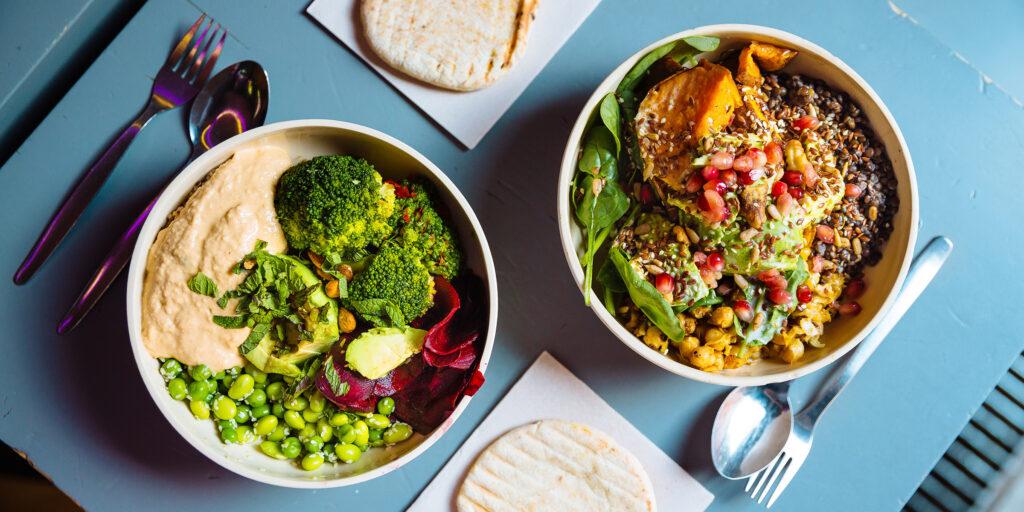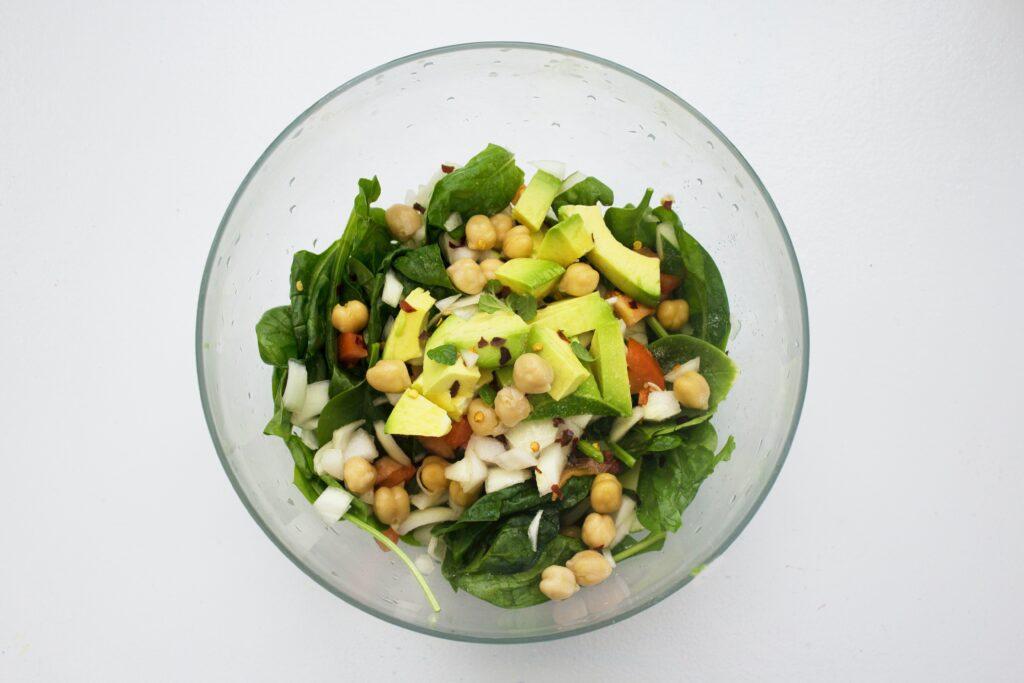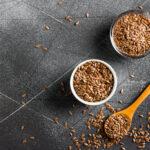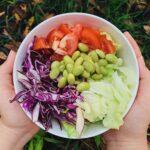
Nowadays, the vegan diet has become very popular. Most people have decided to go vegan for ethical, environmental, or health reasons. The Vegan diet means a diet that does not use any animal products either in their food or their clothing or for any other purpose. A vegan diet is not just a healthy diet, but a way of lifestyle.
This type of diet causes various health benefits, including improved blood sugar control and heart health. A plant-based diet could lower the risk for certain diseases. It can also help you lose weight properly.
The Vegan diet is a diet that is based on plants. These include things like vegetables, whole grains, fruits, nuts, and all the foods that are made from plants. Many people call it a vegetarian diet, but it is quite different from the vegetarian diet because on a vegetarian diet there is no forbidding eating things like cheese, butter and milk, and curd. In other words, a vegan diet is a diet in which animals or any products prepared from them are not eaten. These include things like dairy products, milk, honey, cheese, butter, eggs, and meat.
Research published in The Journal of Nutrition 2021 suggests that avoidance of animal-based foods was associated with a higher intake of ultra-processed foods like meat and dairy product substitutes made from vegan and vegetarian sources. To reap the benefits of this eating lifestyle, focus on nutrient-dense whole foods like beans, lentils, nuts, seeds, whole grains, and plenty of fruits and vegetables.
It aims to cover everything you need to know about a vegan diet, so you can follow a vegan diet in a healthy way.
Table of Contents
Benefits of a Vegan Diet
- A vegan diet includes foods rich in antioxidants. These Vegan Foods Prevent Early Sickness. These foods also help in keeping away from diseases like diabetes and blood pressure.
- There is zero amount of cholesterol in the vegan diet. Also, it contains very little saturated fat. Due to this, the risk of many diseases is reduced. Along with this, it also helps in maintaining good heart health.
- Due to this vegan diet, the life of animals and birds is also protected. A vegan diet helps in reducing your body weight by reducing your calorie intake and increasing your protein intake.
- A vegan(plant-based) diet could lower the risk of certain diseases. It can also help you lose weight properly.
- A lot of vitamins, minerals, and nutrients are available from the vegan diet, due to which the body gets a lot of benefits.
- A vegan (plant-based) diet decreases the risk of cancer.
- Studies say that a vegan (plant-based) diet may improve the gut microbiome.

What to eat in the Vegan Diet
Vegetarians eat a variety of foods. They typically replace meat, eggs and dairy with a variety of plant-based alternatives, which gives a vegetarian diet a lot of versatility.
On a vegan diet, you can eat all the foods that are made from plants, including:
- Fruits and vegetables
- Legumes such as peas, beans, and lentils
- Nuts and seeds
- Breads, rice, and pasta
- Dairy alternatives such as soymilk, coconut milk, and almond milk etc.
- fortified dairy alternatives (almond, oat, coconut or soy milk as well as plant-based yogurt)
- Herbs and spices
- Vegetable oils
- Grains
- tofu
- And anything else that’s made of plants.
What You Can’t Eat in the Vegan Diet
Vegans can’t eat any foods that are made from animals, including:
- Beef, pork, lamb, and other red meat
- Chicken, duck, and other poultry
- Fish and Eggs
- Cheese, butter
- Ice cream, milk, and other dairy products
- Honey
Getting more nutrients from a vegan diet
From a balanced vegan diet, you can get all the nutrients your body needs for your better health.
Vegan Diet sources of calcium
Calcium is very essential for our healthy bones and teeth. You can get these from vegan foods also.
Good sources of calcium for a vegan diet include:
- green, leafy vegetables such as broccoli, cabbage and okra, but not spinach (spinach does contain high levels of calcium that body cannot digest )
- fortified unsweetened soya, pea and oat drinks
- calcium-set tofu
- sesame seeds
- pulses
- brown and white bread
- Dried fruits, such as raisins, prunes, figs, and dried apricots are also a source of vitamins.
- Calcium-fortified foods, such as some orange juice, oatmeal, and breakfast cereal also.
Vegan Diet sources of vitamin D
Vitamin D is essential in regulating the amount of calcium and phosphate in the body. It helps to keep bones, teeth and muscles healthy .
Good sources of vitamin D for a vegan diet include:
- exposure to sunlight
- fortified fat spreads, breakfast, cereals and unsweetened soya drinks-added vitamin D
- Orange juice
- tofu
Vegan Diet sources of Iron
Iron helps in the production of red blood cells in the body.
Good sources of iron for a vegan diet are:
- pulses
- whole meal bread and flour
- fortified with iron breakfast cereals
- Dark green and leafy vegetables
- Nuts and seeds
- dried fruits, such as apricots, figs, walnuts, avocado etc.
Vegan sources of vitamin B12
Vitamin B12 is needed to maintain healthy blood and a healthy nervous system.
Sources of vitamin B12 for a vegan diet include:
- fortified with B12 breakfast cereals
- unsweetened soya drinks fortified with vitamin B12
- extract yeast, as Marmite, and nutritional yeast flakes, which are fortified with vitamin B12
Vegan sources of omega-3 fatty acids
It may help to ensure a balanced diet by eating rich plant sources of omega-3 fatty acids.
Sources of omega-3 fatty acids suitable for the vegan diet include:
- Flaxseed oil
- Vegetable- rapeseed oil
- chia seeds
- Walnuts
You can take care of your heart by eating at least 5 portions of a variety of fruits and vegetables each day, eating plenty of fiber. Avoid eating foods high in saturated fat, and watching how much salt you take in your food.
The Bottom Line
On a vegan diet, you’ll likely find yourself with an abundance of plant foods, including fruits, vegetables, whole grains, legumes, nuts, seeds, and fortified products made from these foods.
So, if you’re interested in making the switch over to vegans, consider seeking advice from a registered dietitian specializing in plant-based diets.
Before following this vegan diet for a long time, you should take the advice of an expert and, according to them, think about following it.
References:
This information has been given on the basis of various research and studies. Therefore, before consuming, please consult an expert or doctor.
The Vegan Diet
https://www.nhs.uk/live-well/eat-well/how-to-eat-a-balanced-diet/the-vegan-diet/
Plant-based diet
https://en.wikipedia.org/wiki/Plant-based_diet
Consumption of Ultra-Processed Foods by Pesco-Vegetarians, Vegetarians, and Vegans: Associations with Duration and Age at Diet Initiation






